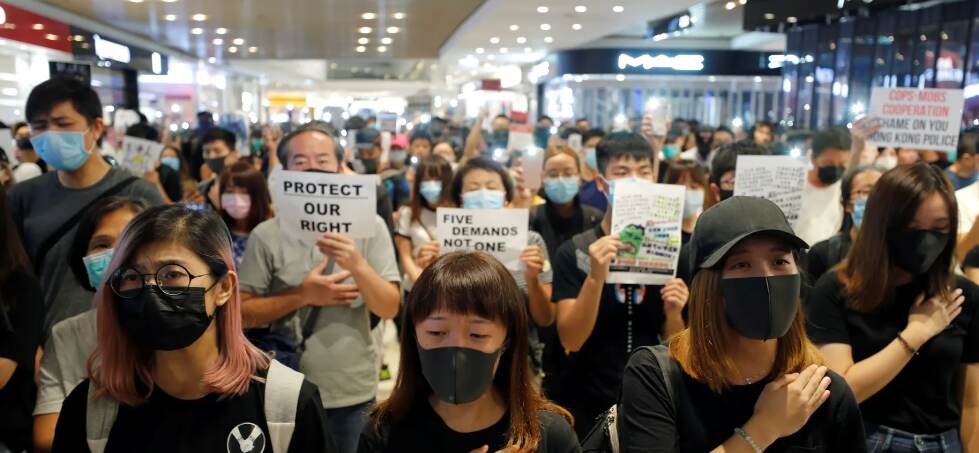Hong Kong Court Strikes a Blow for Freedom: Rejects Government's Attempt to Ban Protest Anthem "Glory to Ho
A Hong Kong court rejects government's request to ban protest song Glory to Hong Kong, a symbol of resistance and democracy. Victory for freedom of expression, but concerns remain over government pressure on tech platforms and erosion of democratic freedoms. Battle for freedom of speech continues.
A Hong Kong court has made a landmark decision by rejecting the government's request to ban the protest song "Glory to Hong Kong." The song, which was written during the pro-democracy protests in 2019, has become a symbol of resistance and calls for democracy and liberty in the Chinese territory.
The government sought to ban the song from being broadcast or distributed, as well as actions that used the song to advocate for Hong Kong's separation from China or incite others to commit secession. The court's refusal to grant the ban is seen as a victory for freedom of expression in Hong Kong, which has faced increasing restrictions under Beijing's control.
Critics argued that a ban would have far-reaching consequences for the city's freedoms of expression and information. However, some analysts caution that this ruling does not mean foreign tech giants can let down their guard, as political challenges surrounding their operations in Hong Kong still exist.
The government had also tried to push Google to display China's national anthem as the top result in searches for Hong Kong's anthem instead of "Glory to Hong Kong." Google, however, refused to comply without a court order proving that the song violated local laws. This prompted the government to seek a legal means to address the issue.
While the court's decision is a significant win, there are concerns that the government may continue to put pressure on tech platforms regarding content removal. Hong Kong remains a highly political place, and lawmakers were surprised by the ruling, indicating that political pressure may persist.
Some legal experts and activists have criticized the government's attempt to use a civil injunction to tackle a political matter. They argue that it is an abuse of the legal system and an attempt to suppress dissenting opinions. Despite the ruling, Chief Executive John Lee emphasized the need to adopt effective measures to prevent and punish acts that endanger national security.
The protests in 2019 were initially sparked by a proposed extradition law that would have allowed criminal suspects in Hong Kong to be sent to mainland China for trial. However, the protests evolved to include broader demands for democracy and police accountability. The government eventually withdrew the bill, but democratic freedoms in Hong Kong have continued to erode since then.
This landmark ruling reflects the court's desire to defend the integrity of the city's legal system and protect freedom of expression. However, the battle for freedom of speech and expression in Hong Kong is far from over, and activists will continue to monitor the government's response to this decision.




